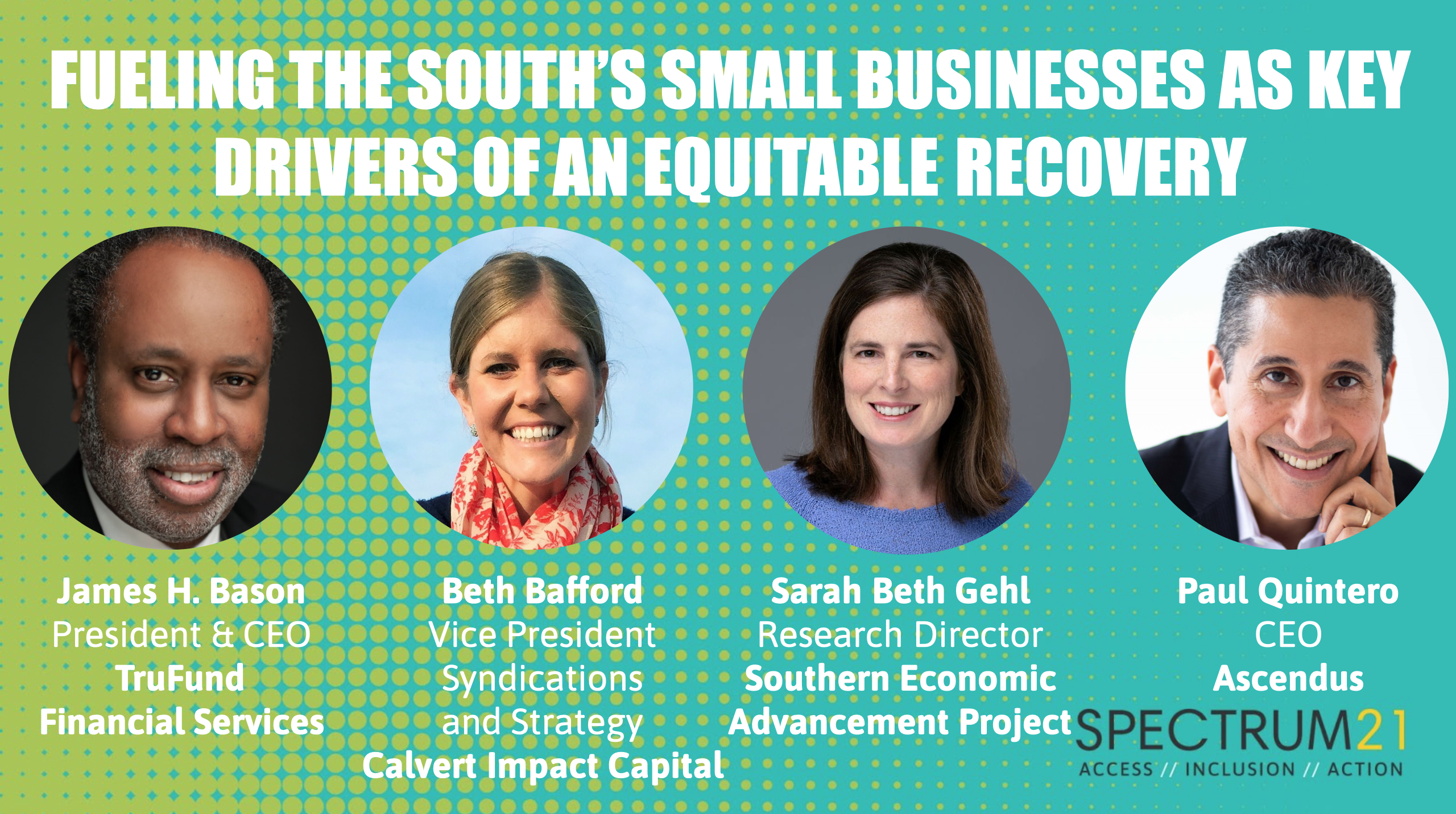Members of the Impact Economy Discuss How to Provide Crucial Support to Southern Communities in the U.S.
Businesses in the south have been historically underfunded and underbanked by almost every metric, so it was unsurprising they received a disproportionately low percentage of federal support in the wake of the pandemic. In response, a cross-sector coalition of philanthropic, private, and corporate investors have partnered with local small business community lenders to launch the Southern Opportunity And Resilience (SOAR) Fund.
With more than $50 million in initial commitments, the fund will provide low-interest loans and free business support to the smallest of small businesses across the south — most with fewer than 10 employees. In this SPECTRUM21 discussion, several partners in the fund’s launch discussed the role of community lenders and investors in supporting traditionally underinvested communities and their learnings from the launch of this first-of-its-kind fund.
The speakers were Beth Bafford, VP, Syndications & Strategy at Calvert Impact Capital, Paul Quintero, President & CEO at Ascendus, James Bason, President & CEO at TruFund Financial Services, and Sarah Beth Gehl, Research Director at The Southern Economic Advancement Project (SEAP).
During the conversation, Bafford mentioned that the South has seen decades of disinvestment while at the same time having some of the fastest growing cities and communities in the United States. She said this situation provides an opportunity for the impact community to step in and provide support.
“This creates this interesting storm between historical challenges but real opportunities for entrepreneurship and small business growth,” she said. “But accessing capital to enable that growth … is going to take a really intentional effort.”
Quintero said that any capital invested in the South should not just be intended to give small businesses a foothold; rather, these investments should be used to catalyze mobility.
“Creating a world of financial inclusion isn’t enough,” Quintero said. “We need to create financial ascension or mobility. Being in the game doesn’t mean you’re going to succeed at the game.”
In the wake of the pandemic, community development financial institutions (CDFIs) have been in high demand, as they serve communities which traditional banks often do not. These same communities have been some of the hardest hit by COVID and the economic fallout.
“The scale and magnitude of what we are facing as a CDFI today … has just been unprecedented,” Bason said. “We have to continue to be responsive to the needs of the community.”
On top of the increased need in the South, Gehl highlighted changing economic and social priorities as an additional reason why investments in the south have the ability to make a huge impact.
“One of the real opportunities right now is that the Biden administration has committed to racial equity, which means the South is where major investments need to be targeted,” she said.
Watch the full session above.







